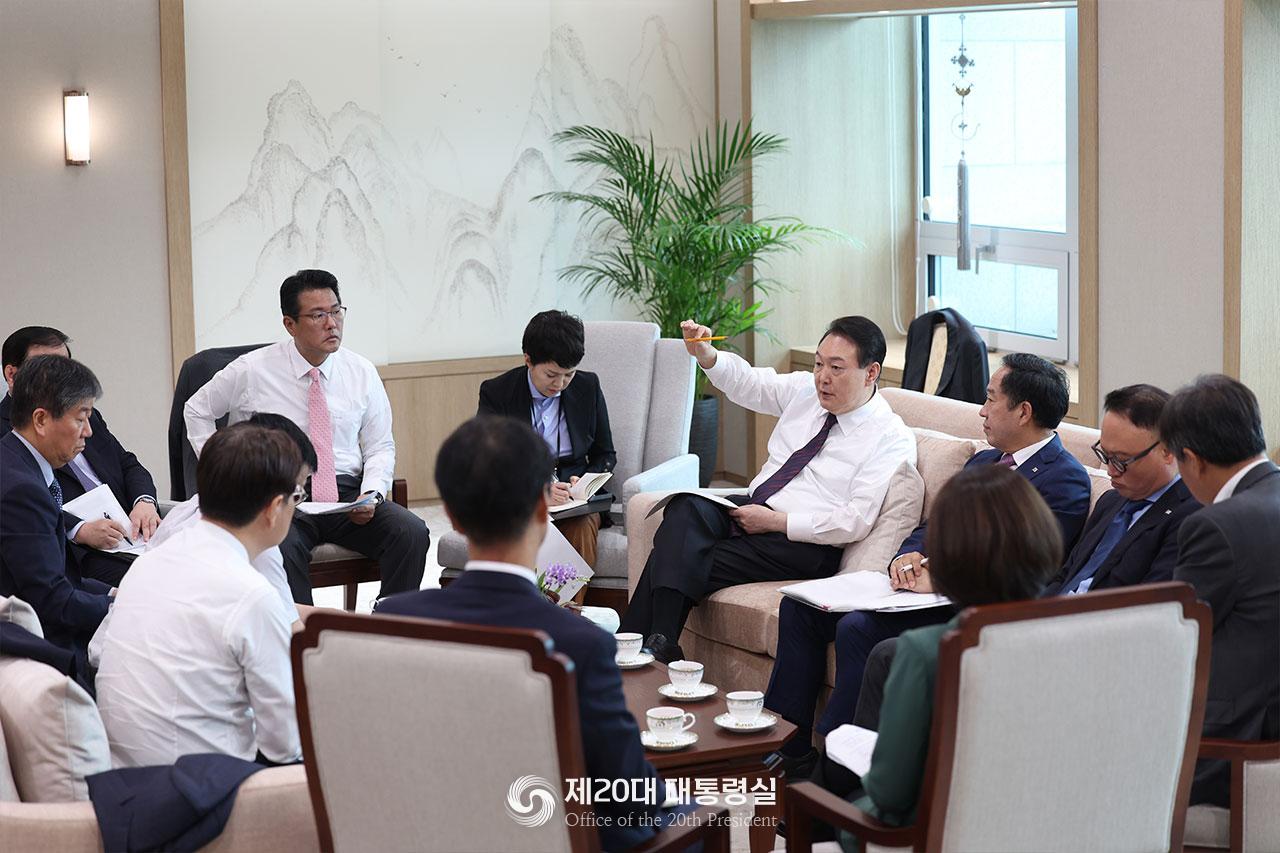Yoon reshuffles his office; new wave of technocrats
I was reading the recent dispatch from Zoltan Pozsar a few days ago. It was my first reading of one of the hottest commentators on Wall Street, and I loved his approach to predicting a new economic order from ultra-wide angle snapshots of geopolitics. Besides, the more-than-usual mentions of South Korea piqued my curiosity about how well he—who got his MBA in Seoul—understands South Korea.
Of course, I wouldn’t be writing with this opening if his understanding was above average.
In his assertation of an imminent chips supply chain disintegration, Pozsar posits that Seoul has already capitulated to China’s pressure, and it will remain the case for a while. It may have seemed so in the days of President Moon, but do you remember what happened last March? Any serious Korea watchers would well remember what Yoon’s campaign platform spoke of the THAAD issue.
Don’t you think South Korea deserves more? So I decided to resume my newsletter. Hi, it’s been a while, folks 👋
However, why didn’t President Yoon meet Pelosi?
This mystery had been haunting me for a while. None of it made any sense: the President apparently giving a cold shoulder to the US House Speaker over… a drama play?; President’s spokesman saying it was decided by “national interest,” which surely gives the impression of giving in to China’s pressure as Pozsar interprets it.
Considering all the official comments and media reports, I suggest Hanlon’s razor should be applied here rather than seeing a big about-face. Joel Atkinson gives a good guess on this:
Yoon’s people may have reasoned that the apparent disagreement between the speaker and the White House over the wisdom of the trip, and her lower rank relative to Yoon’s status as head of state, meant that snubbing her would not be perceived as anti-U.S. alliance. […]
The all-too-predicable outcry that this was not an appropriate way to treat a high-level U.S. official saw Yoon flip-flop and hold a phone call with Pelosi.
It tells a lot that Yoon is now reshuffling his office, including the spokesman mentioned above, although the new guys don’t give me a big hope.
I try not to speak too long about international relations in this newsletter as my focus here is South Korean politics. But as I keep hearing a lot about South Korea turning to China, I shall spill my thoughts a bit.
There’s not much politicians can do about South Korea’s posture toward China. Every discussion on Sino-Korean relations revolves around the trade between the two, and this alone can explain the opportunistic approach of the Korean governments, including the current one.
And it’s already undergoing seismic change. China’s dual circulation strategy means that Seoul can kiss its traditional trade strategy goodbye. Last May, South Korea recorded its first trade deficit with China in 28 years, reflecting a structural change rather than a short-term disruption by covid.
What’s left in Sino-Korean relations if we strike out the trade surplus? Overwhelmingly negative views of voters. Therefore, even though it was true that Moon’s people had a pro-China mindset, including Moon himself, as he reveals in his book recommendation, there was a limit to how close Seoul could get to Beijing even in the Moon administration.
For the same reason, I wouldn’t worry much about the direction of Yoon’s China policy but how well the administration will be prepared for the new economic order where trade with China no longer guarantees a huge surplus. (They are doing a lousy job about it.)
The new wave of technocrats emerges as Yoon reshuffles his office
The Office of the President is having a big shake-up, but in a weird way. While junior-level officials are being replaced at a massive scale—it is said that about 20% of the officers are to be replaced—, senior-level officials in the office stay afloat in calmness. (Maybe they are next?)
However, the reshuffling marks a watershed in the transition of power among the ruling consortium. In the beginning, the Presidency of Yoon Seok-yeol was a rare amalgam of a political party that had yet convalesced from a political bankruptcy and a group of legal bureaucrats—the prosecutors close to Yoon the former chief prosecutor.
Since then, the ruling consortium began to splinter. The first was the rift between Lee Jun-seok, the head-in-suspension of the PPP, and the veteran Yoon allies in the party, or Yoonhaekkwan, over the party hegemony. Apparently, Yoon sided with his allies, as his Hot Cherry sticker suggests. Lee, ousted from the party leadership last August, continues to fight the old-timers’ scheme against him, but time doesn’t seem to be on his side.
Now Yoon seems to be breaking up with his party allies. Many of those being replaced in the President’s office have ties with them. Of course, Yoon’s old boys from the prosecutors’ office are leading the purge.
We are witnessing a new wave of technocrats. South Korean politics had all too many politicians who used to be prosecutors, but this is the first time to see prosecutors on the front line of administration.
They are competent. Han Dong-hoon, the justice minister, has been doing a stellar job. To turn around the awful political situation, however, Yoon needs to set up grand agenda that could win over voters’ approval. But are these bureaucrats capable of this, or can Yoon discover his own brain pool?
